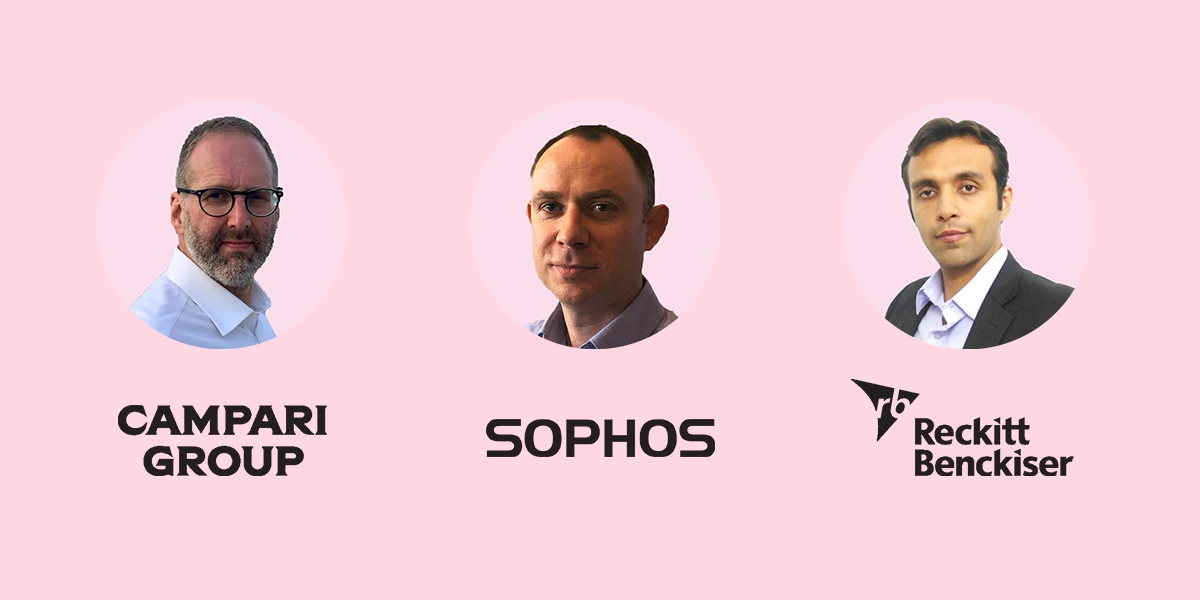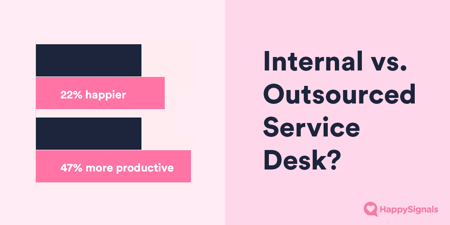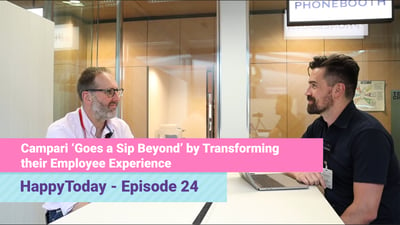Aiding this panel discussion, we have also taken data from our recently released Q2 2020 Happiness Score™ Report, to provide further insights across the industry into the changes and impacts within service departments globally.
IT Incidents at an all time high
People expected IT to fall short of the hurdle, however the opposite has in fact happened, with our Q2 2020 Happiness Score™ Report has revealing a 7 point increase in Happiness since last quarter. However, at the start of the pandemic (at the beginning or March) there was an increase in IT incident responses by 2,000 tickets, creating an all time recorded high in IT incidents.
Chris Fazey, the Group IT Director of Global Service Recovery at Campari Group, claims there was “big relief” in the air as everything kept working. People were grateful to the IT department that they were able to continue working normally.
At first, Chris admits, there was an increase in tickets over the first few days, however Campari Group employees are used to Smart Working and have had this initiative in place for over a year now.
Not only this, but Campari Group have just come out the back of a Global transition period, going through processes leading to big wins and improving services, has helped them managing the situation and transition period.
Chris pointed out that a key to Campari Group’s success was the ability to quickly access data and resolutions through HappySignals service experience platform, in order to get employees what they needed to continue being productive.
The Head of Global Service Management for RB, Prashant Arora, also saw an increase in tickets but it came down to the ease of giving feedback created a core for a good employee experience.
RB, prior to Covid-19 situation, have been running internal campaigns quarterly. This in fact was good timing as there feedback loops were fuelled full of rich data of employee experiences.
Combined with this, RB were also undergoing an overall digital transformation, learning from peoples feedback and making changes in order to create a better experience.
But, why have IT requests stayed the same?
Our Happiness Score™ Report has shown that there has been no change in the amount of IT requests. So, how have companies maintained the amount of IT requests in a time where an increase was expected?
Prashant Arora says that creating an automated approach, especially for low-complex machine faults, allows RB to manage IT requests quicker and provide a consistent level of customer satisfaction to the end-user.
Campari Group also have taken an automated approach when it comes to monitoring machines and being pro-active around data that suggests an end-users machine is likely to break or start developing faults.
Furthermore, managing repairs and reaching people with new equipment is a further challenge due to self-isolation, quarantines measures and social distancing enforced across countries.
Dean Underwood, the Global IT Service Director of Sophos has adopted a “zero touch approach” when re-supplying their workforce with new equipment by using couriers to ship directly to the end-user in need.
Chris at Campari Group have also adopted a similar approach, where some team members are able to come onsite to access different stock, however the people who are ‘smart working’ (Campari Group’s term for Remote Work) have a remote support service which includes the use of couriers to deliver new equipment to the end-user.
What is increasing employee Happiness?
Experience data gathered in our Happiness Score™ Report, showed an increase in Happiness by 7 points. We found that the biggest difference between Happy and Unhappy factors is having a solid team, with the right attitude and skills, which will impact experience and effectively make end-users score higher.
Sophos are using HappySignals data and analytics to tailor decisions on what areas they need to be focusing efforts on. Dean and his team have focused on what their users need when they consume a service, keeping the end-users voice in everything that they do, instead of letting IT define it. This creates a “Frictionless service”.
Furthermore, for RB, being proactive to manage faults and employees expectations is the future of ITSM and their focus for improving happiness within their organisation. End-users expectations towards IT are increasing and people are beginning to expect IT to react before anything happens. Prashant claims that with HappySignals data, RB are able to analyse trends and predict NPS, allowing them to create proactiveness towards managing faults and essentially, creating a better customer experience.
Campari Group also follow suit in this approach, by predicting when and if a laptop of computer hardware or software is going to fail, and therefore creating action before it is too late.
Biggest negative factors
On a whole, all three panel organisations have been impacted by the same similar factors, thus being VPN’s, internet connection issues or access to workspaces.
The biggest factors affecting happiness and productivity for Dean and the team at Sophos were issues affecting connecting to online workspaces to access tools they need and the general level of basic internet connection available to their employees at home.
VPN was not a major factor contributing to negative scores due to the company not using VPN often and only on a micro level.
RB, on the other hand, were impacted through VPN issues and was their biggest concern. However, now RB are focusing their efforts on a new issues, such as comfort, home environment and addressing collaboration concerns.
Furthermore, Campari Group also have struggled with end-users home internet connection, but had a lot of feedback on their employees physical workspaces, thus being so different to the workspace that they have previously been used to in the office. People have been struggling with the lack of desktop monitors that they had.
Campari Group are now looking into this problem to see how they can get new monitors to people in order to create the same environment as the office, for people working remotely.
These negative factors all follow suit to the results that were obtained from the Happiness Score™ Report, with the top 4 factors being related to VPN, internet connection, accessing tools or better office equipment.
Next challenges in 2020
With the ongoing global situations, trends are suggesting that remote work will become a bigger player in the way organisations operate. So how are the panelists preparing for the future within 2020?
Deans focus at Sophos is to continuously adapting to delivering services to people who are going to be permanently are home, in particularly the delivering and return of hardware to homes.
RB on the other hand are focusing on back-to-office strategies with ideas on how to keep a certain distance from each employee. As well as this, Prashant want to truly enable RB’s workforce to be able to work everywhere, adopting a ‘machine first model’.
Chis says that Campari Group can avoid focusing on technical challenges as his department can cope with it. However, his future focus will now be how to keep people on this transformational journey and managing IT changes as well as end-user uncertainty.
You can get full access to the panel discussion here.




